Eqbal Ahmad 3-pack
3 CDs
Includes:
Intellectuals, Ideology & the State
What role do intellectuals play in society? Are they apparatchiks, yes men and women or do they challenge the half-truths, mendacities and fabrications of the rich and powerful? Noam Chomsky explored these themes in his famous essay, “The Responsibility of Intellectuals." published in The New York Review of Books during the height of U.S. aggression in Indochina. Chomsky unambiguously declared, "It is the responsibility of intellectuals to speak the truth and expose lies." He called them the "new mandarins" who are subservient to the ruling class and use their privileged position to advance their careers. They provide the cover for the crimes of state, articulating the underpinning and embedded ideology. For their services, they are well rewarded with endowed chairs at the best universities, frequent media appearances and fat book contracts. In this program, Eqbal Ahmad examines the work of intellectuals such as Chomsky, Antonio Gramsci, Edward Said, I.F. Stone, Rabindranath Tagore and others and the relationship of knowledge to power. Recorded at MIT.
Terrorism: Theirs and Ours
Terrorism is the scourge of the era. It is a fearsome symbol conjuring up images of ferocious-looking, bearded men brandishing AK-47s. The media focus on the terrorism of official enemies like Saddam Hussein, bin Laden, and Zarqawi. After they were done away with, new demons appear to justify war and bloat the Pentagon budget. Be afraid of ISIS and Al Qaeda in the Arabian Peninsula. Be afraid of Yemen and Somalia, Pakistan and Afghanistan, Iraq and Syria. Be afraid of all the jihadi groups that have mushroomed all over the Middle East. The notion that the U.S. and its allies engage in terrorism is simply not a topic for discussion. To scrutinize U.S. policy is verboten. The War on Terror goes on and on. Recorded at the University of Colorado.
Portents of a New Century
The 16th century began a 400 year period that transformed the world which brought great delight for a tiny minority of the world's population. For the majority of humankind, it was a time of much anguish and tragedy. Eqbal Ahmad takes us through the 19th and 20th centuries from the World Wars to the Cold War with a special focus on the entrenchment of U.S. foreign policy in the Middle East. In this 1991 talk, he describes the crisis of the world as being “a changing world with an unchanging America on top of it,” warning that “the first place the price of this will be paid, will be in the Middle East.” Nearly three decades later, we continue to see the calamities of U.S. foreign policy in the Middle East wreak havoc on the region.
Speaker
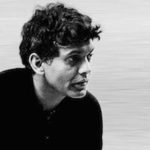
Eqbal Ahmad
Eqbal Ahmad was Professor Emeritus of International Relations and Middle Eastern Studies at Hampshire College in Amherst, Massachusetts. He had an extraordinary life. He was born in Irki, Bihar to an Indian Muslim landowning family. His father was murdered because he was parceling out land to peasants. Upon the partition of India in 1947 he went to Pakistan. He came to the U.S. to attend Princeton. He was in Algeria during the revolt against French rule. For many years he was managing editor of Race and Class. His articles and essays appeared in The Nation and other journals throughout the world. He wrote a weekly column for Dawn, Pakistan’s oldest English newspaper. He was one of the most original and influential anti-imperialist thinkers of his era. He was a leading figure in the anti-Vietnam War movement. He was a remarkable and persuasive orator. As a teacher, he was mentor and inspiration to many. He was a close ally of Edward Said, Noam Chomsky and Howard Zinn. Edward Said called him “an intellectual unintimidated by power or authority.” Confronting Empire and Terrorism Theirs & Ours are the two books he did with David Barsamian. Eqbal Ahmad died in Islamabad on May 11, 1999.

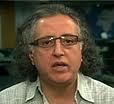
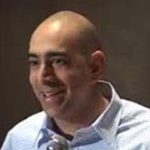
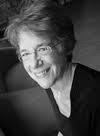
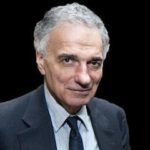


Reviews
There are no reviews yet.